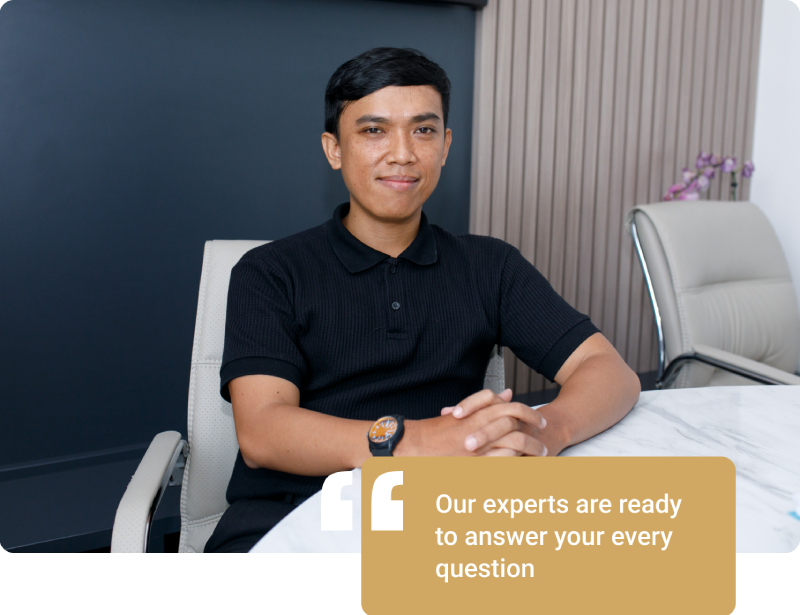In January 2024, the Indonesian government introduced a new visa system, making it mandatory for all visa applications to be submitted online. This update includes the introduction of new visa codes for various subtypes, each designated for specific purposes of visit of the country such as tourism, business, or more specific permits.
Additionally, existing visa codes have undergone modifications. For instance, the B211 visa for business purposes is now referred to as the Index C2 Visa, while the B211a visa for tourism purposes is now labeled as the Tourist Visit Visa 211a.
Check out this post for more details!
New Indonesian Visa Categories and What They Mean
In Indonesia, visas are categorized from B to E, each identified by a combination of letters and numbers (e.g., D1, C7A, E28B). These categories, briefly outlined below, come with distinct requirements, validity periods, and permissions (for more in-depth explanations, please scroll down to the corresponding section below):
- Index B: Visa on arrival
- Index C: Single-entry visit visa
- Index D: Multiple-entry visit visa
- Index E: Limited stay visa
Let’s delve into the specifics of each Index B, C, D, and E.
Index B Visa: Visa on Arrival
I used to enter Indonesia visa free as a tourist, why can’t I do that anymore?
You may have previously enjoyed the privilege of entering Indonesia without a visa, simply walking through the immigration gate and getting stamped, thanks to your passport. However, due to the COVID-19 pandemic, Indonesia has replaced this visa-free system with Visa on Arrival (VoA) under Index B, except for ASEAN countries.
Keep in mind that VoA requires an application form and fee, which can be processed at the airport or before arrival through Electronic Visa on Arrival (eVoA).
Who should apply for B Visas: B Visas are for travelers planning a brief visit to Indonesia for purposes such as
- Index B1 – seeing friends or family
- Index B2 – business, meetings, or purchase of goods
- Index B3 – receiving medical treatments
- Index B4 – dealing with the government
Permitted stay: Up to 30 days (extendable once for an additional 30 days)
Multiple entry: No
Permitted to work or receive wages: No
Index C Visa: Single-Entry Visit Visa
These are single-entry visas issued for 30 days, 60 days, or even 180 days, with the possibility of extension (except C7 eVisa) and allowing engagement in activities beyond tourism.
Who should apply for C Visas: C Visas are intended for foreigners seeking to participate in specific activities extending beyond tourism. There are now available 30 C visa indexes for different permits. Some of the eligible activities include:
- C1 – Tourism
- C2 – Business visit
- C7 – Art and cultural performances, music show
- C8 – Non-commercial sports
- C10 – Lecturing or presenting at an event without an employment relationship with parties in Indonesia
- C11 – Participation in MICE (meetings, incentives, conventions, and exhibitions) as an operator
- C12 – Pre-investment (issued for 180 days, extendable)
- C14 – Film Making
- C18- Work trials in Indonesia.
Multiple entry: No
Can I work using a C Visa in Indonesia?
No, but certain C visas allow you to engage in business activities with or without receiving compensation or remuneration. The crucial rule for visa holders is that if your visa does not specify the right to work, you are prohibited from working during your stay.
Index D Visa: Multiple-Entry Visit Visa
To put it simply, D visas can be considered the most versatile entry visas, encompassing all activities covered by B and C visas. They offer an adjustable length and validity period, allowing for multiple re-entries.
Who should apply for D Visas: D Visas cater to temporary stay purposes, including those covered by B and C visas. They provide diverse options for visitors who intend to stay longer or engage in a broader range of activities.
Permitted stay: Vary depending on the type of activity and the validity of the visa (see each visa type below for details)
Multiple entry: Yes
List of D visas for visitors
Here’s a comprehensive list of D visas, meticulously compiled by our Bali Business Consulting team. To identify the most suitable visa for you, carefully review the info. If you need any help, feel free to ask our team!
D1 – Tourism, Family, or Onward journey to another country: Visiting specific places for the purposes of recreation, personal development, or learning the unique attractions of tourism, including but not limited to touring on a yacht or attending as a participant in a Meeting, Incentive, Convention, and Exhibition.
- Permitted stay: Up to 60 days per entry (extendable up to 180 days)
- Validity period: 1, 2, or 5 years
D2 – Business, Joining a meeting, or Purchasing good(s): Engaging in discussions, negotiations, and/or signing business contracts.
- Permitted stay: Up to 60 days per entry (extendable up to 180 days)
- Validity period: 1, 2, or 5 years
D3 – Conducting activities related to medical treatment.
- Permitted stay: Up to 60 days per entry (extendable up to 180 days)
- Validity period: 1 or 2 years
D14 – Conducting activities related to producing a foreign film.
- Permitted stay: Up to 60 days (extendable)
- Validity period: 1 or 2 years
D17 – Carry out activities related to audits, quality control, or inspections at company branches.
- Permitted stay: Up to 60 days (extendable)
- Validity period: 1 or 2 years
Frequently Asked Questions about D Visa
Can I work using a D Visa in Indonesia?
No, working is not permitted with a D Visa. However, certain C visas allow you to engage in business activities without receiving compensation or remuneration. The key rule for visa holders is that if your visa doesn’t explicitly state your right to work, you are not eligible to do so.
Can I extend my D visa?
While most D visas allow you to extend your stay for each entry, it’s important to note that the overall validity period cannot be extended. Once your visa’s validity period expires, you must reapply and enter Indonesia with your new visa. Therefore, planning your visit and aligning it with the suitable validity period (1, 2, or, in some cases, 5 years) is crucial.
Index E Visa: Limited Stay Permit ITAS
E visas go beyond being just visas; this index includes permits for working (whether on-site or remote), staying as a foreign investor, reuniting with family members, and making Indonesia your second home, among other possibilities. If you’ve come across terms like ITAS or Izin Tinggal Sementara, those are examples of these exclusive and influential visas.
However, such powerful visas come with great requirements. The longer you intend to stay, the more evidence you’ll need to provide to assure authorities that you won’t pose any financial burden during your time in Indonesia. Despite this, the application process is generally straightforward and manageable. If you find yourself uncertain, we’re more than happy to assist you, ensuring you don’t have to navigate the intricate paperwork and filing alone.
For more information about E visas, including the remote working visa, second home visa, and retirement visa, please visit our page INDONESIAN LIMITED STAY PERMIT ITAS: A COMPLETE GUIDE.
What We Recommend
To summarize, we would like to highlight the key visa types that are well-suited for visiting Indonesia for either tourism or business purposes.
For Tourism: D1 Visa or C1 Visa
Single-Entry Tourist Visit Visa C1 (ex 211A eVisa) is the best choice for those who are going to stay in Indonesia for up to 60 days or more. This visa is issued for 60 days and also can be extended 2 times for 60 days each time.
Multiple-Entry Tourist eVisa D1 is the perfect choice for a long-term stay in Indonesia. Visa issued for 1, 2 or 5 years and allows you to stay in Indonesia for up to 60 days at a time, extendable 2 times for 60 days each time. Throughout the validity of the visa, you can leave the country an unlimited number of times.
To Conduct Businesses: С2 or D2 Visa
If you are planning to come to Indonesia for a business visit, for meetings or to purchase goods, including to inspect goods at a factory or product production, visas C2 and D2 are the right choice for you.
Single-Entry Business eVisa C2 is issued for 60 days, extendable 2 times for 60 days each time. Thus, you can stay in Indonesia for 180 days in total.
Multiple-entry eVisa D2 is issued for 1, 2 or 5 years and allows you to stay in Indonesia for up to 60 days at a time, extendable 2 times for 60 days each time. So in total you can stay up to 180 days per visit. Throughout the validity of the visa, you can leave the country an unlimited number of times.
For Market Research or Investment Opportunities: D12 Visa
For those looking the investment opportunities in Indonesia, and would like to research the local investment market, the D12 eVisa is recommended. It allows a stay of up to 180 days per visit, with the option for extension for another 180 days. Throughout the validity of the visa, you can leave the country an unlimited number of times.
For Digital Nomads: E33G
The best choice for those who want to live in Indonesia and work online for overseas company. Remote worker KITAS E33G is issued for 1 year and allows you:
- Carry out assignments from overseas company.
- Bring eligible family to live in Indonesia (as a sponsor for a Family KITAS).
- Travel to and from Indonesia.
- Conducting activities related to tourism, and visiting friends or family.
Choose the Right Visa
Having the correct visa is crucial for a trouble-free vacation or the seamless operation of businesses in Indonesia as a foreigner. While all these visas can be acquired electronically through the immigration website, our team at Bali Business Consulting is here to assist you in ensuring you don’t overlook any steps that could result in a denial of your request. Feel free to contact us for expert assistance!










